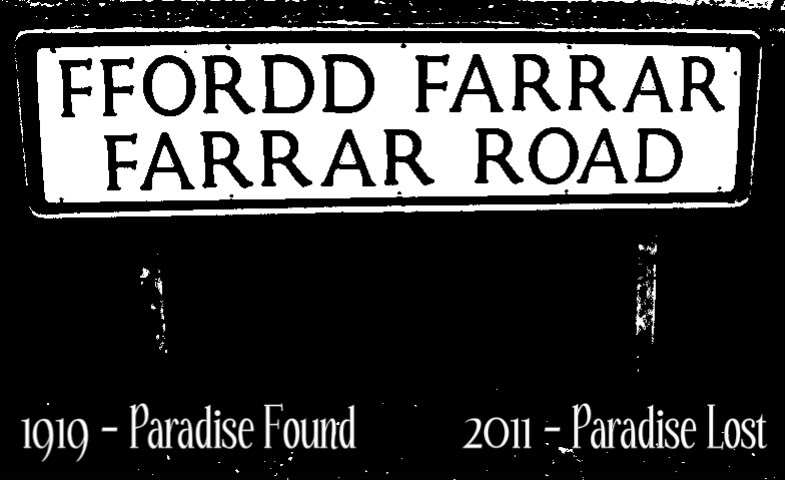An “academic” not only wrote this sodding article he used the word “cool” to advertise it on twitter;
@SanjitAtwal I wrote this for
@guardian_sport on why data in football is cool@Squawka http://www.theguardian.com/football/blog/2014/feb/07/defence-football-statistics-drama-data …
Here’s the load of shite in its full glory;
In defence of football statistics: the drama is in the data
Some fans think statistics rob football of its romance, but data visualisations can improve our understanding of the game .John Keats once accused Sir Issac Newton of destroying the poetry of the rainbow by trying to explain how all of the colours got their hues. It’s a story I found myself recalling after reading Michael Moruzzi’s article that claimed analysing football through statistics misses the point of the game.
Football has succeeded in attracting many fans due to its unfailing accessibility. But this great strength of the game also appears to be its biggest weakness. If the game we all love suddenly starts to seem inaccessible then a natural wariness from fans is probably to be expected. This wariness fuels the current argument raging between the legacy art of the beautiful game and the enterprise science of data analysis.
Numbers are perhaps not for all. It’s to the traditionalist’s credit that they fall back with an argument based on the beauty of the sport being reduced to binary output; however it does seem odd that we would choose to polarise such a thing as football as either art or science.
Data and, crucially, data visualisation is key to helping a new generation of fans understanding the game better. What is more, data visualisation can help fans get closer to the action when processed in real-time. Where in-game data was once solely the realm of managers, it is now available to fans at no expense other than the effort to type in a URL or to open an app. So what does this mean for the modern football lover?
It means offering the ability to turn opinion into fact instantly. This does not mean the tribal pastimes of the sport – the trash talk on the terraces and in the pubs – are redundant. On the contrary, surely having access to the data in a digestible format should spark more debate and fuel further discussion? To deny this would be to admit that Britain has lost something Keats, Newton and co were famed for – the appetite for both a vociferous and informed argument.
I’m not saying the written and broadcast media have cracked the winning formula yet (one need only observe the fashionable and entirely inaccurate “average position” graphic doing the rounds in production studios at the moment that actually shows you where players have touched the ball). But I think we must keep striving towards balance in our sport media consumption or face a bleak future.
There may be a generation of fans who crave nothing more than clichéd punditry and mundane highlight shows in which they get their quick fix of goals and showboating. This would be fine if it weren’t for the fact that there is so much more nourishment and stimulation available on the very same games.
It’s the equivalent of a happy meal versus a seven-course gourmet dinner. Both are foodstuff, but the tastes, flavours and subtleties of the gourmet dinner delivers a vastly more rewarding experience. The analogy stretches comfortably to football and the ability data has to uncover new and gripping storylines in a match, team, player or season.
If you seek it, there is indeed drama in the data. The metrics of pass completion, interceptions, headed duels and so on are, when put in context via data visualisations, skeins woven together. The story they tell may or may not have been the one presented to you on the weekly highlights show, but the power is there for you, the fan, to judge the performance for yourself.
The art and science of football can live together not only in harmony but also in a symbiotic relationship in which they both inspire and derive meaning from one another. How else would one bring to fore the true performance of a player such as the previously maligned Jordan Henderson for Liverpool? I hope the visualisation above informed, engaged and entertained you. Why would anyone not want to know more about the thing they love?
Sadly people appreciated his effort;
@Cnyari – More than cool, it’s the future! RT@SanjitAtwal for@guardian_sport on why data in football is cool@Squawka http://www.theguardian.com/football/blog/2014/feb/07/defence-football-statistics-drama-data …
@Ciaran_O@guardian_sport@SanjitAtwal you’re the Richard Dawkins of football Sanjit! Great piece.
I’m not saying our hero’s pretentious but he puts himself on the same level as Keats and Newton and fancies himself as a scientist because he looks at football-related numbers.
I’m not saying our hero’s arrogant but he has set up a false dichotomy of primitives versus pioneers – “the tribal pastimes of the sport” versus “the enterprise science of data analysis” – to self-importantly place himself at the centre of a pseudo scientific industry. The cheeky bastard despises primitives yet he’d dearly love them if they give his pioneering attitude an fawning audience, I could choke on this chancers’ arrogance if I thought about it too much.
Giving his brand of football data horseshit some kind of scientific basis is an insult to the scientific method. Scientists use data to prove, or disprove, important ideas for the benefit of humanity, this snake oil salesman counts the amount of times men kick a ball to each other.
This particular snake oil salesman might think he can help people gain a better understanding of football through data but two problems hold him back.
Problem Number 1 – He doesn’t actually understand football. If he has to use data to help him to understand the simple sport of football then he can’t understand football. Fans don’t need data to understand football. They have eyes so they are quite capable of analyzing the matches they attend and figuring out stuff. Fans are able to see who ran, who tackled and who passed the most, they know who’s good at shooting and who needs 4 shots to get his eye in. For example a Liverpool fan managed to spot the qualities of Jordan Henderson today;
@LFCHistoryShow ROLLS ROYCE ENGINE. This lad is turning in performance after performance. Covered every blade of grass. HENDO! pic.twitter.com/Wj2GRNOtHX
Data will only hint that a team’s been unlucky, a fan would know. The sort of person that needs in-game data is the kind of person that’s depriving other people of a ticket.
Problem Number 2 – Data isn’t cool, it’s the dry numbers a smartarse uses to win arguments, it’s something that politicians use to hoodwink people, it’s what snake oil salesmen use to con people.
The claims for the greater use of data are easily shot down, let’s consider this idea;
It (Data) means offering the ability to turn opinion into fact instantly. This does not mean the tribal pastimes of the sport – the trash talk on the terraces and in the pubs – are redundant. On the contrary, surely having access to the data in a digestible format should spark more debate and fuel further discussion? To deny this would be to admit that Britain has lost something Keats, Newton and co were famed for – the appetite for both a vociferous and informed argument.
Firstly opinion is not fact. Secondly, if Britain needs anything it’s less football opinion not more, I suspect this snake oil salesman has never been surrounded by a super sunday cacophony. Thirdly, greater access to information won’t create more informed arguments, it’ll lead to people taking more strident positions because they can clothe their prejudice in hard data. The only thing that will come from greater data is more angry shouting; “LOOK LAD, JUST ADMIT THAT CLEVERLEY IS BETTER THAN YOU THOUGHT, LOOK HIS PASS COMPLETION RATE IS 94.3% NOT 89.3%. IT’S THERE IN BLACK AND WHITE, BLACK AND WHITE SEE” What a horrible scenario this is.
Data can be useful for managers and coaches, as it can help them with their jobs, but fans don’t need it. You either like football or you don’t, you either get football, or you don’t. It’s that simple.
Data can tell us that John Jensen finally scored for Arsenal on a particular date, and that Djimi Traore won the European Cup after his side had been 3-0 down against the clinical European aristocrats of Milan, and that Ole Gunnar Solkjaer stabbed the ball past Oliver Kahn in May 1999. But data can’t describe what it was like to witness these events. Data couldn’t possibly explain the inherent joy, or drama, of the last 4 minutes of the Italy v Germany 2006 world cup semi final.
Data is useless for fans because the attractions of football and the attractions of data are polar opposites. Data’s attraction is it’s certainty and proof, football’s attraction is it’s unpredictability and beauty, football’s attraction is not the knowledge of pass completion rates.
You may know that your club has a 75% share of possession and a 99% pass completion but this don’t won’t explain why your centre back cost you the match with an inexplicable own goal in the 88th minute. A fan would understand why it happened, but that’s football for you.
Please don’t think I’m having a go at the many decent people that keep records of useful stuff like results, caps and playing records. I respect the compilers that preserve this sort of data because their work involves a labour of love and a sense of duty.
This sort of data is also invaluable if people ever have a nagging query. There’s some wonderful about our ability to visit websites like Tony Kempster’s or Bart Kassies’ European football site or the Welsh Football Data Archive or the immense Football Club History Database.
There’s nothing wrong with data per se either If people want to analyse matches through data then good luck to them, live and let live and all that. I mean who am I to judge? I’m not above writing data-related blog posts (Here, here and here ). Football’s a broad church and we all do our own thing when it comes to the beautiful sport. Some of us have a few pints with mates, some go in the ground early, some collect programmes, others travel around the non-league grounds of England and take pictures of corner flags. All of it is valid.
As a comrade on the WSC message board said last night, the trouble with the calculator using snake oil salesmen is that he tells us he’s paradigm shifting in such a condescending tone;
He’s claiming that stats are integral to appreciating football…………..He’s arguing that unless you enjoy his company’s brand of largely meaningless info-graphics, you’re an idiot; that you’re too stupid or too blindly ignorant to ever appreciate or understand football’s complexities.”
The people that take enjoyment from football don’t often claim to have greater insight than the next man, even when they’re standing next to Michael Owen. In claiming to possess the divine right of insight he’s claiming a power that no sane British person has claimed since the Glorious Revolution of 1688.
In short, wind your neck in lad.










[…] heard of Squakwa but it’s CEO, Sanjit Atwal, had been a stranger until last weeks’ passionate defence of football stats in the guardian. It wasn’t the most auspicious of first virtual encounters; to say I disagreed […]